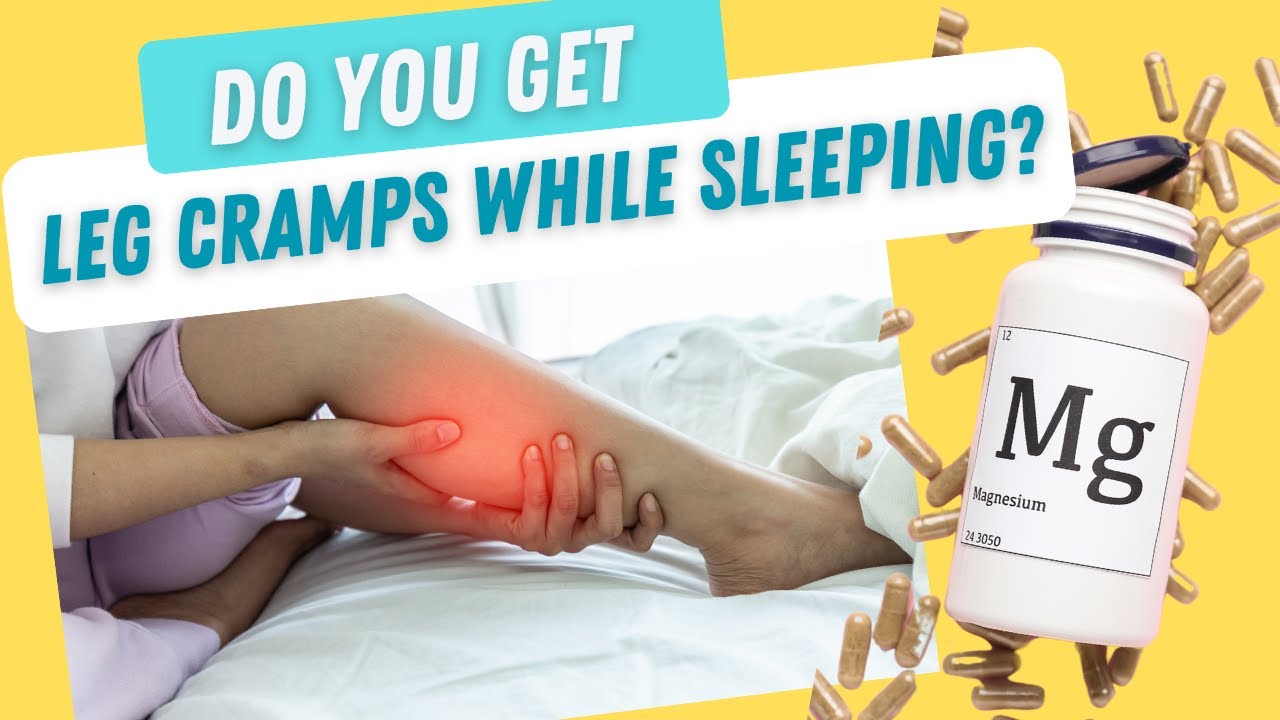
Vitamins for Leg Cramps: Unveiling the Truth Behind Nighttime Relief
Leg cramps, those sudden, involuntary muscle contractions that often strike at night, can be a significant source of discomfort and disrupted sleep. While various factors contribute to their occurrence, including dehydration, muscle fatigue, and certain medical conditions, the role of vitamins for leg cramps is a topic of considerable interest. This article delves into the potential benefits of specific vitamins and minerals in alleviating and preventing leg cramps, separating fact from fiction and providing evidence-based insights.
Understanding Leg Cramps
Before exploring the potential of vitamins for leg cramps, it’s crucial to understand what they are and what causes them. Leg cramps are characterized by a sudden, intense tightening of muscles, most commonly in the calf. These cramps can last from a few seconds to several minutes and can be excruciatingly painful. While often benign, recurrent leg cramps can significantly impact quality of life.
Several factors are known to contribute to leg cramps, including:
- Dehydration: Insufficient fluid intake can lead to electrolyte imbalances, triggering muscle contractions.
- Muscle Fatigue: Overexertion or prolonged periods of standing or sitting can strain leg muscles.
- Electrolyte Imbalances: Deficiencies in electrolytes like potassium, magnesium, and calcium can disrupt muscle function.
- Poor Circulation: Reduced blood flow to the legs can contribute to cramping.
- Certain Medical Conditions: Conditions like diabetes, kidney disease, and peripheral artery disease can increase the risk of leg cramps.
- Medications: Some medications, such as diuretics and statins, can have leg cramps as a side effect.
The Role of Vitamins and Minerals
The potential of vitamins for leg cramps lies in their ability to address underlying factors that contribute to muscle dysfunction. Several vitamins and minerals have been studied for their effectiveness in preventing or reducing the severity of leg cramps.
Magnesium
Magnesium is a crucial mineral involved in numerous bodily functions, including muscle contraction and relaxation. A deficiency in magnesium can lead to muscle spasms and cramps. Studies suggest that magnesium supplementation may be beneficial for individuals experiencing leg cramps, particularly those with documented magnesium deficiency. However, it’s essential to consult with a healthcare professional to determine the appropriate dosage and form of magnesium, as excessive intake can cause side effects such as diarrhea.
Research on the effectiveness of magnesium for leg cramps is mixed. Some studies have shown a significant reduction in the frequency and intensity of leg cramps with magnesium supplementation, while others have found no significant benefit. This variability may be due to differences in study design, participant characteristics, and the form and dosage of magnesium used. Further research is needed to clarify the role of magnesium in preventing and treating leg cramps.
Potassium
Potassium is another essential electrolyte that plays a vital role in muscle function and nerve transmission. Low potassium levels can disrupt the electrical signals that control muscle contractions, leading to cramps. While potassium deficiency is less common than magnesium deficiency, it can occur due to certain medical conditions, medications, or inadequate dietary intake.
Increasing potassium intake through diet or supplementation may help alleviate leg cramps in individuals with potassium deficiency. Good sources of potassium include bananas, potatoes, spinach, and beans. However, potassium supplementation should be approached with caution, as excessive intake can lead to serious heart problems. It’s crucial to consult with a healthcare professional before taking potassium supplements.
Calcium
Calcium is essential for muscle contraction and nerve function. While calcium deficiency is not a common cause of leg cramps, it can contribute to muscle spasms in certain individuals, particularly pregnant women. Calcium supplementation may be beneficial for pregnant women experiencing leg cramps, but it’s essential to consult with a healthcare professional to determine the appropriate dosage.
Vitamin D
Vitamin D plays a crucial role in calcium absorption and bone health. Vitamin D deficiency can lead to muscle weakness and pain, which may contribute to leg cramps. Ensuring adequate vitamin D levels through sunlight exposure, diet, or supplementation may help improve muscle function and reduce the risk of leg cramps, especially in individuals with documented vitamin D deficiency. [See also: Vitamin D Deficiency Symptoms]
B Vitamins
B vitamins, particularly B12, are essential for nerve function. B12 deficiency can cause nerve damage, leading to muscle cramps and other neurological symptoms. While B12 deficiency is not a common cause of leg cramps, it should be considered in individuals with other neurological symptoms. Good sources of B12 include meat, poultry, fish, and dairy products. Vegans and vegetarians may need to supplement with B12 to ensure adequate intake. If you suspect you may have a B12 deficiency, consult with your doctor who can order a blood test and determine the appropriate course of action.
Lifestyle Modifications and Other Remedies
While vitamins for leg cramps may offer some relief, it’s important to remember that they are not a magic bullet. Lifestyle modifications and other remedies can also play a significant role in preventing and managing leg cramps.
- Stay Hydrated: Drink plenty of fluids throughout the day, especially before, during, and after exercise.
- Stretch Regularly: Stretching your leg muscles, particularly the calf muscles, before bed and after exercise can help prevent cramps.
- Wear Supportive Shoes: Wearing shoes with good arch support can help reduce strain on leg muscles.
- Avoid Overexertion: Gradually increase the intensity and duration of exercise to avoid muscle fatigue.
- Apply Heat or Cold: Applying heat or cold to the affected muscle can help relieve pain and spasms.
- Massage: Gently massaging the cramped muscle can help relax it.
- Elevate Your Legs: Elevating your legs can help improve circulation and reduce the risk of cramps.
When to See a Doctor
While most leg cramps are benign and self-limiting, it’s essential to see a doctor if you experience:
- Severe or persistent leg cramps
- Leg cramps that are accompanied by swelling, redness, or skin changes
- Leg cramps that interfere with your daily activities
- Leg cramps that are associated with a medical condition or medication
Your doctor can help determine the underlying cause of your leg cramps and recommend appropriate treatment options. They may also order blood tests to check for electrolyte imbalances or other medical conditions.
Conclusion: Are Vitamins the Answer?
The role of vitamins for leg cramps is complex and not fully understood. While certain vitamins and minerals, such as magnesium, potassium, and vitamin D, may be beneficial for some individuals, they are not a guaranteed solution for everyone. The effectiveness of vitamins for leg cramps depends on the underlying cause of the cramps and individual factors. [See also: Home Remedies for Leg Cramps] Lifestyle modifications, such as staying hydrated, stretching regularly, and avoiding overexertion, are also crucial for preventing and managing leg cramps. If you experience frequent or severe leg cramps, it’s essential to consult with a healthcare professional to determine the underlying cause and receive appropriate treatment.
Ultimately, addressing vitamins for leg cramps involves a holistic approach that considers individual needs and circumstances. Understanding the potential role of specific vitamins and minerals, along with lifestyle modifications and medical evaluation when necessary, can help individuals find relief from the discomfort and disruption caused by leg cramps. More research is always needed to fully understand the intricacies of vitamins for leg cramps and how they can best be used to alleviate this common ailment.

